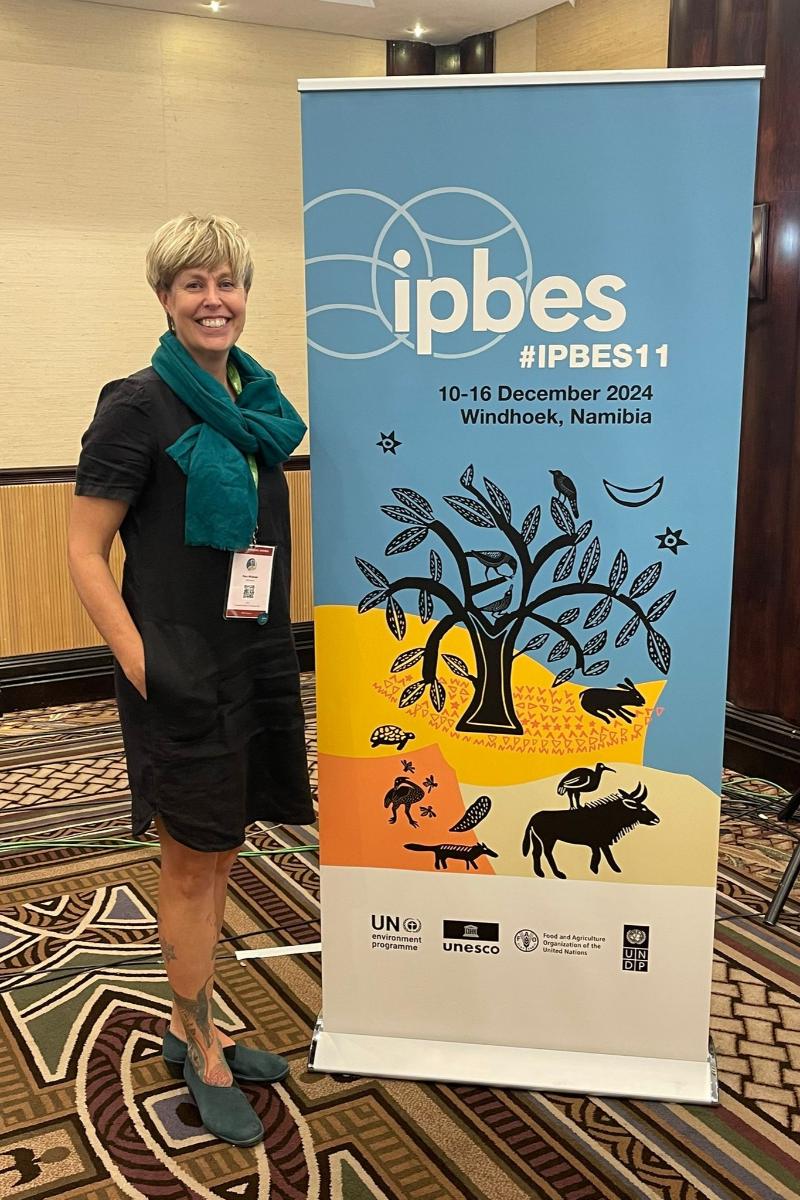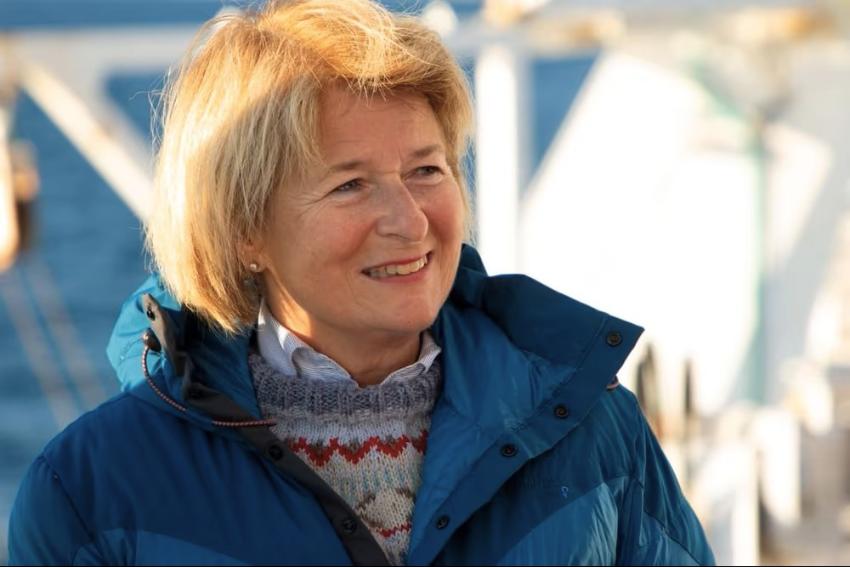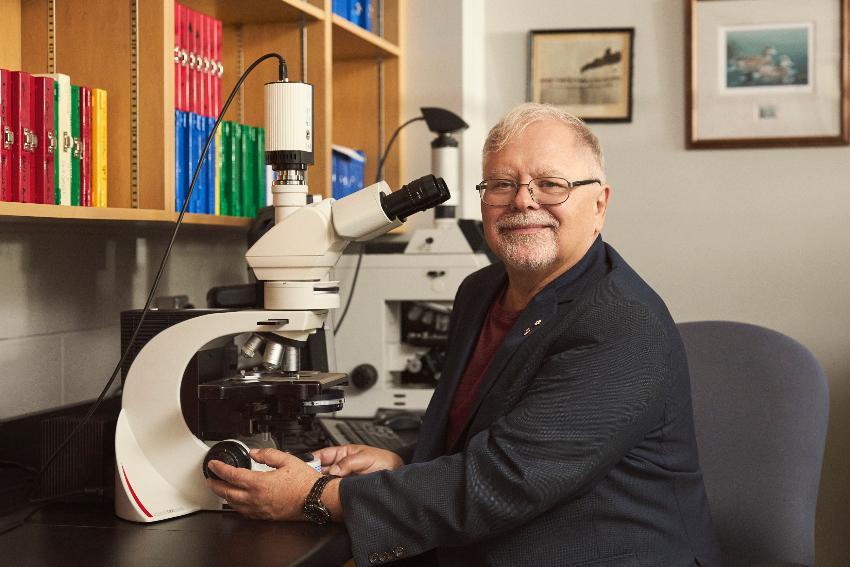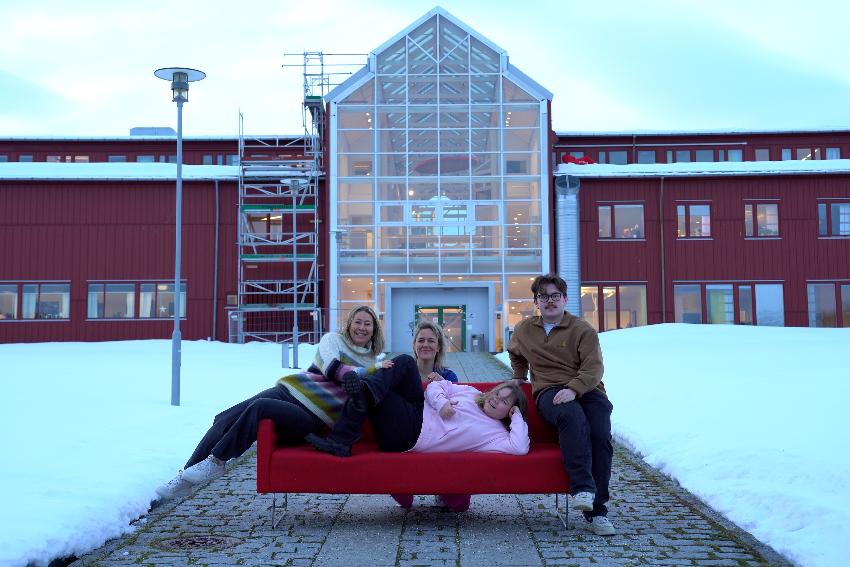Advised on biodiversity loss and nature's decline
Fern Wickson was a central figure in UN's "nature panel" delivering its report to the world's governments. The work took 3 years and referenced 7,000 articles.
"The work has been extremely challenging but also very inspiring and highly rewarding" says Professor Fern Wickson.
In late December 2024, in the scorching heat of Windhoek, the capital of Namibia, she finalised the IPBES Transformative Change report for the organization's 11th plenary session – together with several hundred other researchers, politicians, and officials.
UN's Nature Panel
- In 2019, IPBES demonstrated how one million species are at risk of extinction, and the situation has only worsened since then.
- WWF's Living Planet Report, published in 2024, noted an average decline of 73% in wildlife populations since 1970
- The report consists of five chapters:
- Introduction to transformative change
- Visions for a positive future
- Approaches to change from various sciences and indigenous knowledge
- Challenges and barriers to change
- Strategies and actions for transformative change
- The report will provide decision-makers with the best knowledge and options for actions that lead to transformative change. It will also explore pathways to achieve the 2050 vision of living in harmony with nature.
- IPBES is a global science-policy platform that assesses the state of biodiversity and nature's contributions to human existence. IPBES has nearly 150 member countries and works to strengthen policy and decisions through science.
The three main reasons for biodiversity loss
The UiT professor is the coordinating lead author of the report's first chapter and has worked with over 100 researchers from around the world for the past three years. The chapter examines the underlying causes of nature loss.
They identified three main reasons:
- That humans are disconnected from nature
- That money and power are concentrated in fewer hands
- That humans prioritize short-term, individual, and materialistic goals
IPBES stands for the Intergovernmental Science-Policy Platform for Biodiversity and Ecosystem Services and is in many ways equivalent to the UN's climate panel, but for biodiversity and ecology.

"We are in a very serious and accelerating nature crisis right now, composed of biodiversity loss, climate change, and pollution. And they affect each other, making both the problems and solutions complex," says Wickson.
A gigantic task and five possible ways forward
The report they agreed upon outlines the underlying causes of the significant loss of biodiversity in recent decades and how nature is retreating worldwide.
Furthermore, they have identified what stands in the way of counteracting the serious development and propose new strategies to achieve a sustainable and just world.
"It is a gigantic task, and the report delivers a comprehensive response. But I believe we have come up with good ways forward," said Wickson from the conference center in Namibia.
The report comes with five strategy proposals:
- Protect, restore, and regenerate places of value for people and nature that exemplify biocultural diversity.
- Work towards systematic changes and implement biodiversity as a given in the sectors most responsible for nature's decline.
- Transform economic systems to prioritize nature and justice.
- Transform governance systems to be inclusive, accountable, and adaptable.
- Change views and values to recognize the connections between humans and nature.
"Being part of work that provides strategies and measures that can reverse such a huge crisis is extremely valuable to me. I am actually fortunate to be able to contribute to the global effort to solve the crises," says Wickson.
You can read a summary of the report in English here: Media Release: IPBES Transformative Change Assessment | IPBES secretariat. There you will also find a longer PDF with a more thorough summary of the report.
-
Fiskeri- og havbruksvitenskap - bachelor
Varighet: 3 År -
Fiskeri- og havbruksvitenskap - master
Varighet: 2 År -
Akvamedisin - master
Varighet: 5 År -
Bioteknologi - bachelor
Varighet: 3 År -
Arkeologi - master
Varighet: 2 År -
Peace and Conflict Transformation - master
Varighet: 2 År -
Computer Science - master
Varighet: 2 År -
Geosciences - master
Varighet: 2 År -
Biology - master
Varighet: 2 År -
Physics - master
Varighet: 2 År -
Mathematical Sciences - master
Varighet: 2 År -
Biomedicine - master
Varighet: 2 År -
Computational chemistry - master
Varighet: 2 År -
Biologi - bachelor
Varighet: 3 År -
Medisin profesjonsstudium
Varighet: 6 År -
Nordisk - årsstudium
Varighet: 1 År -
Historie - årsstudium
Varighet: 1 År -
Luftfartsfag - bachelor
Varighet: 3 År -
Arkeologi - bachelor
Varighet: 3 År -
Pedagogikk - master
Varighet: 2 År -
Informatikk, datamaskinsystemer - bachelor
Varighet: 3 År -
Informatikk, sivilingeniør - master
Varighet: 5 År -
Allmenn litteraturvitenskap - årsstudium
Varighet: 1 År -
Geovitenskap- bachelor
Varighet: 3 År -
Biomedisin - bachelor
Varighet: 3 År -
Kjemi - bachelor
Varighet: 3 År -
Matematikk - årsstudium
Varighet: 1 År -
Ergoterapi - bachelor
Varighet: 3 År -
Fysioterapi - bachelor
Varighet: 3 År -
Radiografi - bachelor
Varighet: 3 År -
Farmasi - bachelor
Varighet: 3 År -
Farmasi - master
Varighet: 2 År -
Romfysikk, sivilingeniør - master
Varighet: 5 År -
Klima og miljøovervåkning, sivilingeniør - master
Varighet: 5 År -
Bærekraftig teknologi, ingeniør - bachelor
Varighet: 3 År -
Odontologi - master
Varighet: 5 År -
Filosofi - bachelor
Varighet: 3 År -
Anvendt fysikk og matematikk, sivilingeniør - master
Varighet: 5 År -
Arctic Nature Guide - one year programme
Varighet: 1 År -
Arktisk friluftsliv og naturguiding - bachelor
Varighet: 3 År -
Arktisk friluftsliv - årsstudium
Varighet: 1 År -
Grunnskolelærerutdanning for 1.-7. trinn - master
Varighet: 5 År -
Governance and Entrepreneurship in Northern and Indigenous Areas - master
Varighet: 4 År -
Praktisk-pedagogisk utdanning for trinn 8-13 - årsstudium (deltid)
Varighet: 2 År -
Internasjonal beredskap - bachelor
Varighet: 3 År -
Ernæring - bachelor
Varighet: 3 År -
Landskapsarkitektur - master
Varighet: 5 År -
Grunnskolelærerutdanning for 5.-10. trinn - master
Varighet: 5 År -
Ph.d.-program i naturvitenskap
Varighet: 3 År -
Environmental Law - master
Varighet: 2 År


